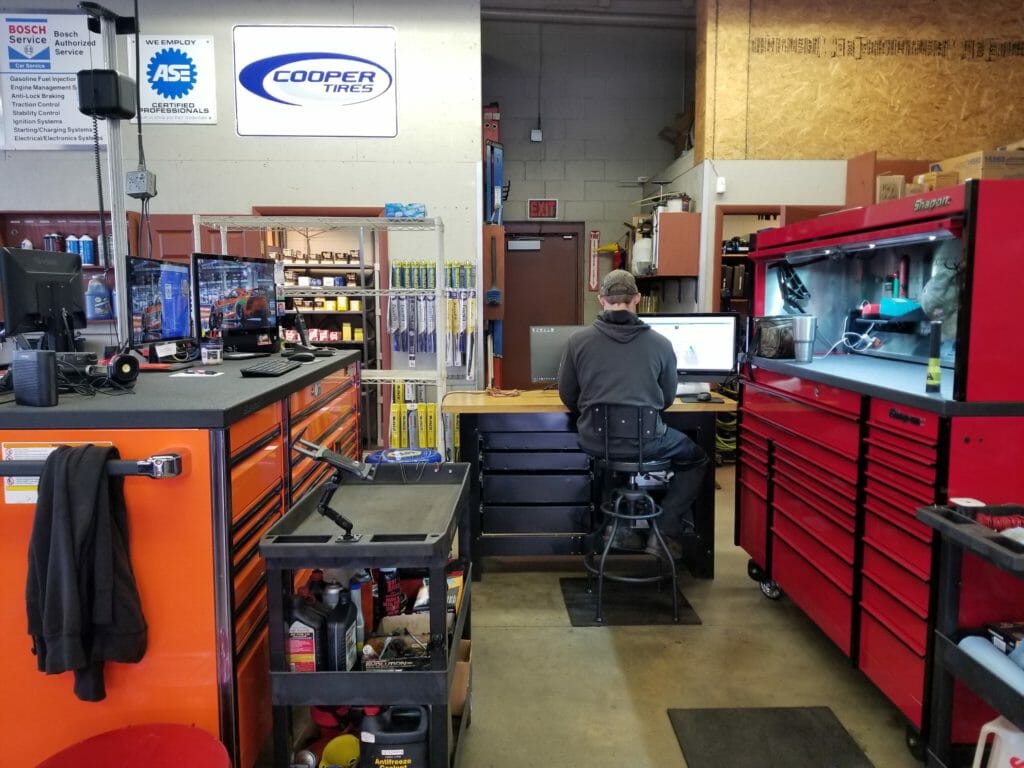Auto Repair Tools – Do They Increase Your Stress?

In discussing some of the stresses that auto techs must live with working in the auto repair industry, one topic that regularly comes up is tools. The issue of auto repair tools is complicated. While all auto techs must have tools in order to do their jobs, shops differ in what they require and what they provide in terms of tools. For many techs, acquiring the auto repair tools necessary to work efficiently poses a huge financial burden and increases their stress levels.
The Expense of Auto Repair Tools
Unlike any other occupation even in the skilled trades, auto techs are expected to bring their own property to work with them to do their jobs. Most techs would say that they need to have a complete set of tools in order to make sure that they can work productively and make a livable wage. Not having access to specific tools means that repairs will be slower and they will earn less money and work longer hours. The definition of what constitutes a complete set of tools, however, is up for some debate.
Because manufacturers are making cars more complex and computerized, the tools that are required to fix them also get more complicated and expensive. Shops will provide larger equipment like vehicle lifts, alignment machines, and brake rotor lathes, but can decide which other tools – and how many of them – they will make available to their employees. Some shop owners will offer their techs tool allowances or reimburse them for purchases that help the shop, but the amount varies, of course. There is no industry-wide agreement on what shops should provide in terms of tools or what’s fair to techs in terms of cost sharing.
How Many Tools Are Necessary?
Whether it’s true for the specific employment they have, many techs believe that they must keep their toolboxes up to date with the tools required for most repair jobs to remain employed and competitive. Since tools can be very expensive, collecting even relatively inexpensive tools adds up over time. Some techs have invested over $100,000 in their tool collections and $20,000 or more in their toolboxes alone.
Techs will often purchase their tools using credit which means that unless they are financially savvy, those tools will end up costing more than the purchase price. Taking on debt increases stress levels for anyone, but when it’s unclear whether that tool investment will pay off? It can make those stress levels skyrocket.
Studies have shown that debt and taking on more debt leads to lower marital satisfaction. Couples with higher levels of debt tend to fight more, spend less time with each other, and be critical about how the other person in the relationship spends money. Fighting over money, lack of money, or how money should be spent is a common cause of divorce, and as we discussed in a previous blog, auto techs are more likely to experience divorce.
Conversely, when couples pay off debt, they report being happier in their marriages. This is because the presence of debt and the requirement to pay it off limits choices in terms of where they live, if they can make a major purchase like buying a home, and if they think they can afford to have children.
So if a tech feels like he has to buy more tools to make more money and his spouse does not agree that those tools will really result in higher pay, that causes a real problem. If it’s not totally clear why the tool is necessary, that may cause even more tension in the relationship. The spouse may think that money would be better spent on rent, a mortgage payment, groceries, or a family vacation. She may not understand the kind of pressure the tech feels about his ability to compete minus “a complete set” of auto repair tools.
If those tools are bought on credit and the interest rate is high, that puts an even greater stress on the tech and the family. Too many techs can’t pay, and their tools are repossessed. Then they are out the cost of the tools and have nothing to show for it.
When techs discuss dissatisfaction with their pay, the subject of tools will often come up in conversation. That’s because buying tools is seen as a required, invisible cost that comes out of wages even if it’s not withheld. Wages should be higher, the argument goes, because the cost of being a tech, in terms of tool investment, is already so high. Why aren’t shops helping more? Or paying better?
What is your experience with auto repair tools? Do you have a complete set of tools? How much have you invested in making sure you have the right tools to do your job? Has the cost of buying tools caused you undue stress or put a strain on your relationships? We would love to know what your experience has been, so please weigh in either here or in our forums.


During all the years I was an employee, I paid Snap-On $100/wk. for my tool bill as it was a given in my book. If I wanted something and my tool bill balance was too high, my dealer would make me wait a few weeks and get my balance down before I could get it. I more or less got to be conditioned to that’s simply how life works. Most importantly, my wife simply accepted it as there were no big tool surprise purchases that would wreck the household budget. I always seemed to have more tools than anybody else.
Tool expense stress, IMHO, is caused by making random tool payments and purchases instead of budgeting a set amount away each week that can be counted on by the technician, the wife, and the tool dealer. That way, it’s a win/win/win for all concerned.